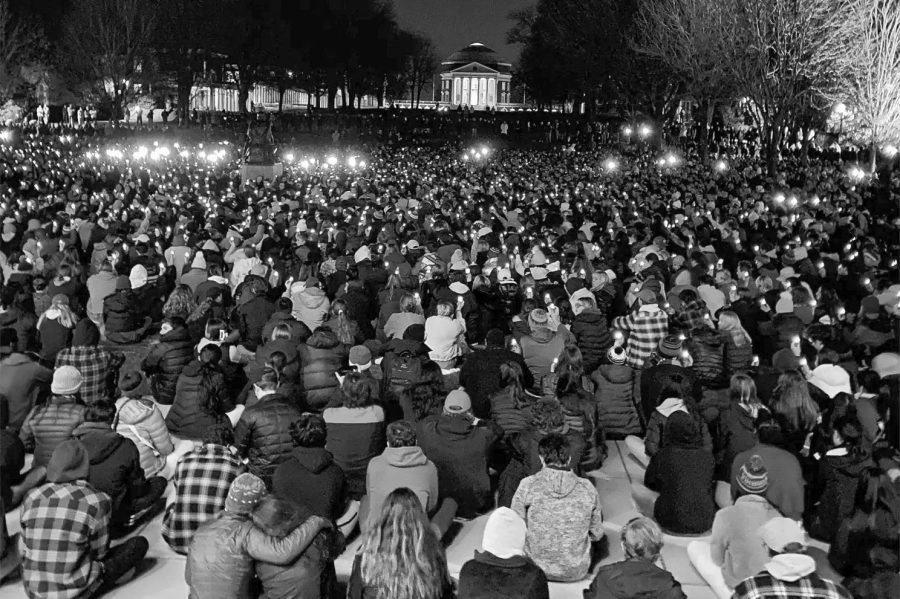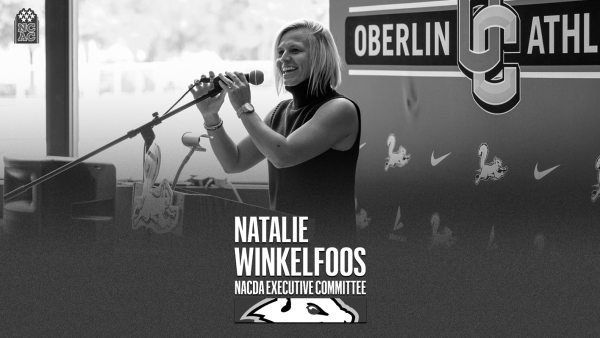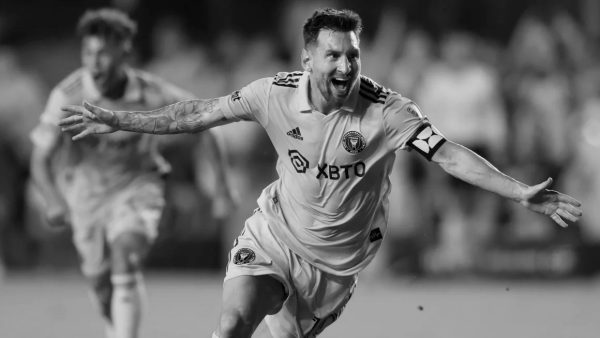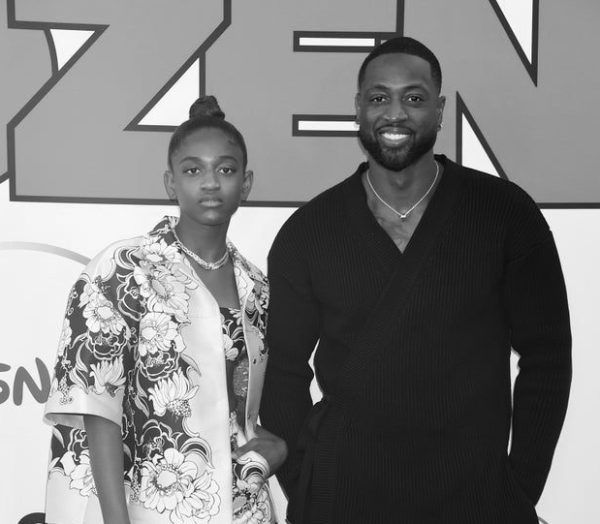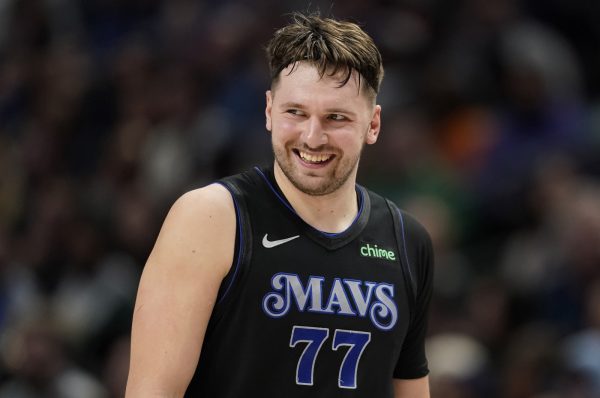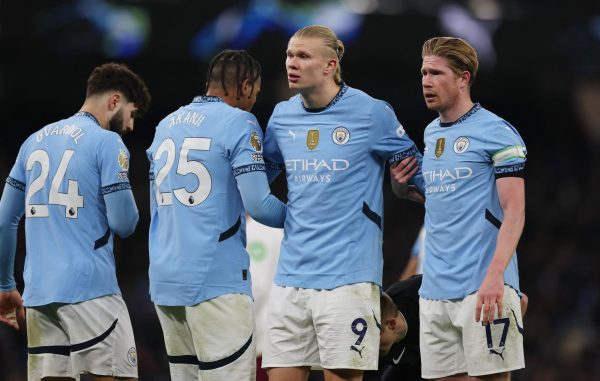Victims Reduced to Statistics in UVA Tragedy Reports
A vigil was held Nov. 14 after a shooting at the University of Virginia.
On Nov. 13, a shooting occurred on a charter bus at the University of Virginia. Devin Chandler, Lavel Davis Jr., and D’Sean Perry, three varsity football players, were killed. Additionally, Mike Hollins, another football player, and Marlee Morgan, a second-year student, were injured. In the weeks following, the Charlottesville community has taken time to process the event, commemorate the victims, and support the survivors.
Football was undoubtedly a significant part of Chandler, Davis Jr., and Perry’s lives, especially at UVA, a Division I school. However, it took much longer for the public to take interest in who they were off the field and learn about Chandler’s passion for his American Studies major, Perry’s skill in visual art, and Davis Jr.’s role in the Groundskeepers, a group advocating for social change and activism. Before a school-wide memorial service on Nov. 21 where teammates, friends, and family members celebrated their lives, media coverage and commentary referred to them primarily by their identities as athletes. For instance, there were discussions of Chandler’s recent transfer from the University of Wisconsin and Davis Jr.’s anticipated comeback after a recent injury. All three of their numbers — 1, 15, and 41 — along with their media day photos, were featured prominently on tributes and art.
Journalists also brought up UVA’s ranking in the conference, head coach Tony Elliot’s overall record, Chandler, Davis Jr., and Perry’s rankings in high school recruitments, and their football statistics at UVA. Additionally, although reactions to UVA canceling the remaining two games of the season were mainly positive, there were still some fans who were angry that the rest of the season ended abruptly.
Jack Diskin, a third-year on the Oberlin football team, believes that referencing the victims as athletes affected how people viewed the tragedy.
“Part of me thinks it stands out more with them having the platform and identity as athletes,” he said. “But at the same time, I feel like it would lead some people to ignore the tragedy and just see them as ‘football players’ instead of people. I don’t watch UVA football too much and did not know of the players prior to their passing, but will likely remember them for what the narratives say about them as players.”
Diskin is no stranger to being known for athletics statistics. Benched due to injury, the football team missed their top wide receiver out on the field this year. However, he says that looking at people based on one aspect of their identity or role can be unintentionally dehumanizing.
“You don’t see them for who they are, their actions off the field, and the character they possess, but instead you just see them as numbers,” Diskin said. “Every athlete, student, and person has many identities, but when we just look at one of their roles, it closes us off to the other parts of the person that make them unique.”
Fourth-year football captain, star quarterback, and basketball guard Chris Allen Jr. also believes that being referred to as an athlete first has different meanings and connotations to people, especially for Black student-athletes, who historically and continually face exploitation within the NCAA.
All five students killed or injured in the shooting were Black. Additionally, the bus was returning from a field trip to Washington D.C. where they had watched a play about the life of Emmett Till that was organized by Theresa Davis, a Theater professor for a class about African-American playwrights.
“I think being a student-athlete provides a unique opportunity, but it also comes with great responsibility and is something that you have to pay attention to everyday,” Allen Jr. said. “As much as my life involves being an athlete, I wouldn’t say it’s the most important to me, because at some point my time as an athlete will end, and you have to be able to be a well rounded human being.”
Allen Jr. agrees with Diskin in that merely looking at statistics limits a full understanding of a program, and he hopes to be remembered more for his impact on people rather than just his athletic records.
“You don’t see the behind the scenes of everything that goes into the preparation of a team,” Allen Jr. said. “I think a lot of outsiders take that for granted when watching sports. They don’t see the hours of blood, sweat, and tears the athletes go through on a daily basis. It’s almost disrespectful to look at a player or team that way. Every person has a role on the team– it’ll be different for every person, depending on the role, but whether big or small, every single person matters for a team to achieve success.”
It can be easy for fans and commentators to judge an athletics team based on how they’re ranked in the conference, to criticize a coach for their strategies, or to determine a player’s worth based on how many minutes they’ve played in a game. But the UVA shooting, and the coverage of those affected by it, has shown that student-athletes and coaches deserve to be recognized for more than just their athletic abilities. Their character and humanity cannot be pushed to the sidelines.


